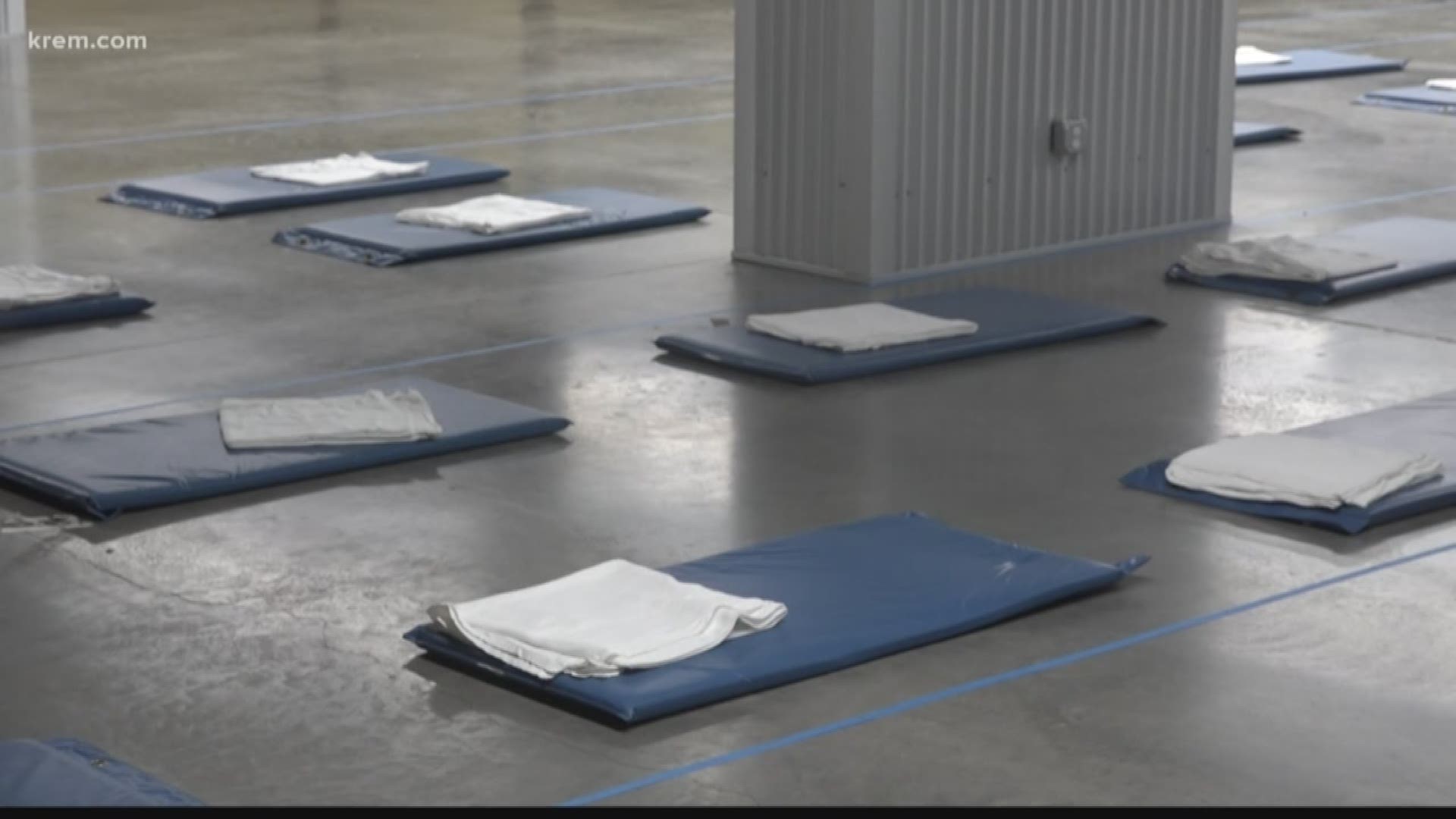SPOKANE, Wash. — The Spokane Center for Justice filed a civil lawsuit against the City of Spokane, Mayor David Condon and the Spokane Police Department on behalf of a resident of Camp Hope, according to a press release sent out on Friday.
In December 2018, police removed dozens of tents outside of Spokane City Hall. People were camping there as a protest over what they called a lack of resources for the homeless in Spokane.
The lawsuit was filed on Wednesday. According to the Center for Justice, the suit alleges federal and state constitutional violations related to the cleanup of the camp outside city hall.
The Center for Justice said the city unlawfully confiscated the plaintiff’s personal property, including his home, and threw it in a garbage truck. The center alleges that the city “failed to provide even the most basic due process protections required by law and had no plan to store the plaintiff’s property—contrary to the city’s own 48-hour notice to remove property.”
The lawsuit claims the plaintiff’s property was taken pursuant to a camping ordinance, which was not being enforced when there is a lack of shelter space. The Center for Justice said on the morning of the Camp Hope raid, no warming centers or shelter space was available.
“The City of Spokane has organized a campaign against its homeless citizens with a series of ill-planned, ruthlessly executed and cruel raids designed to harass these citizens and essentially drive them away,” the Center for Justice wrote in a press release.
The plaintiff is seeking damages and an injunction to forbid the City of Spokane from “harassing” homeless citizens, the press release said.
KREM 2 reached out to both the City of Spokane and the Spokane Police Department for comment.
Spokane police said they cannot comment on the pending lawsuit.
City of Spokane Spokesperson Marlene Feist said the city has been served with the suit and their attorneys are reviewing it. Feist said the city has no other comment.
This lawsuit comes less than a week after a separate suit was filed by the Northwest Justice Project on behalf of a family of former Camp Hope residents.
That suit names only the City of Spokane as defendants, but it too seeks financial damages.
Both suits use many of the same arguments, related to the notice posted in December that informed Camp Hope residents they needed to remove their belongings within 48 hours.
That notice cited Spokane's anti-camping ordinance, promised "pre-deprivation" hearings, and stated that "items of obvious value" would be preserved.
The first argument used by both suits is that that the anti-camping ordinance could not be legally enforced at the time, as doing so requires there be enough space in city shelters.
The lawsuits make two claims in this regard. One, that the emergency warming centers did not count as shelters, because they closed every morning and did not provide a place to store belongings. Two, that even if they did count, the ordinance would remain unenforceable, because the centers were full at the time of the evictions.
The second argument is that the hearings done prior to the evictions were a sham. Lawyers say that one police captain presided over the hearings, that the hearings did not provide due process, that many people were not given their hearings, and that the captain rejected every single plea.
The third argument is that the city did not fulfill its promise to preserve items of obvious value. The lawyers say workers simply threw everything they saw into garbage trucks. Furthermore, they argue the city didn't even make a plan or attempt to preserve important items, saying there was no place set aside to put them.
All of this, both suits say, constitutes violations of legal and human rights.

